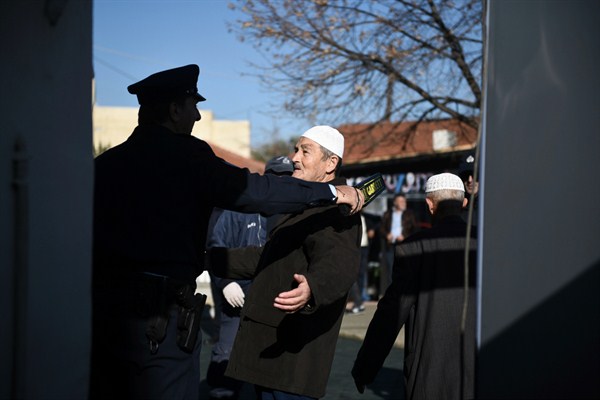Editor’s Note: This article is part of an ongoing series about religious minorities in various countries around the world.
On Jan. 9, Greek lawmakers voted to limit the power of Islamic courts operating in the country’s Western Thrace region, on its border with Turkey. The new law upends a system of maintaining separate legal rules for the region’s 100,000-strong Muslim minority that stretches back nearly a century. In an email interview, Effie Fokas, a senior research fellow at the Hellenic Foundation for European and Foreign Policy and a research associate at the London School of Economics’ Hellenic Observatory, discusses what motivated the government to pass the new law, as well as the broader experiences of religious minorities living in Greece.
WPR: What drove the Greek parliament’s decision to limit the powers of Islamic courts operating in the Western Thrace region?

